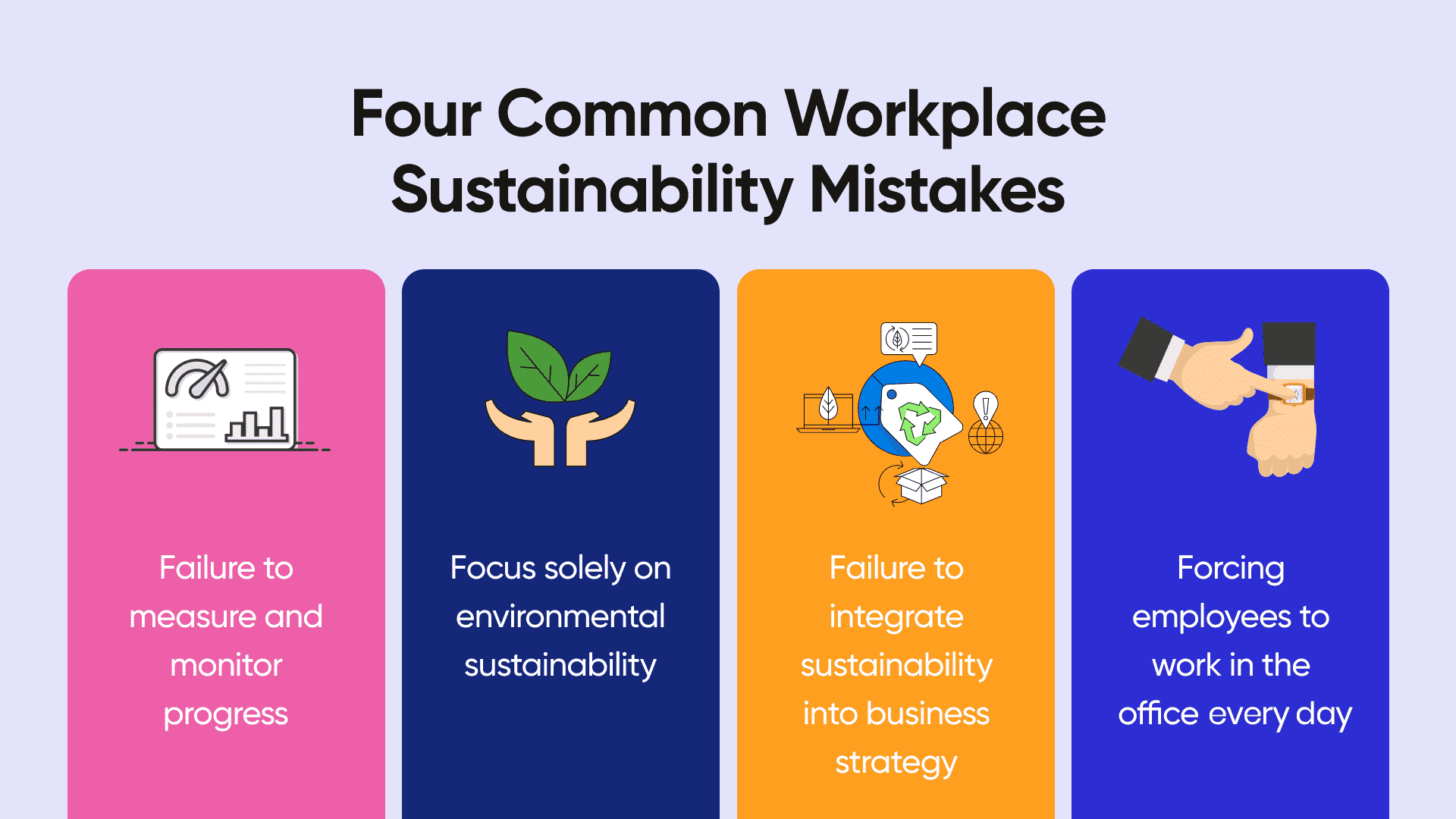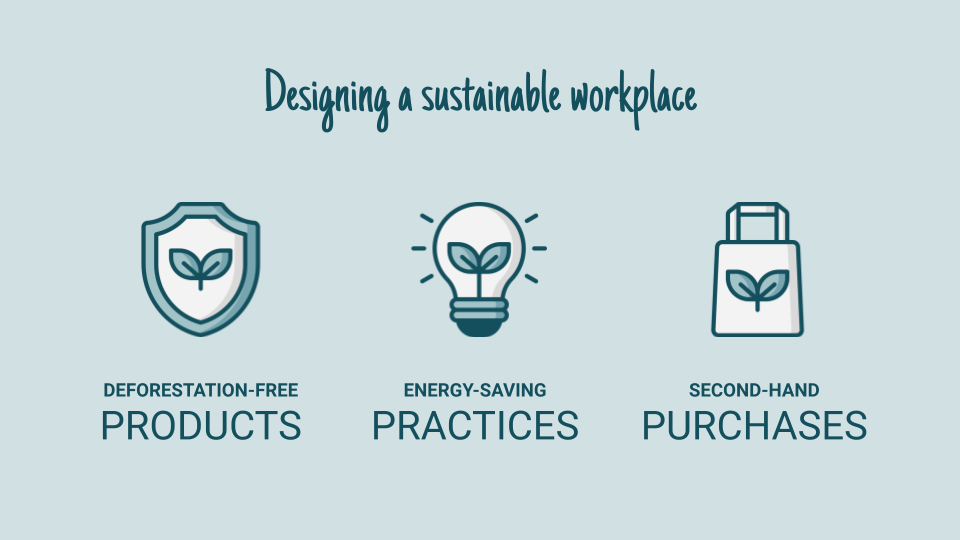Sustainable Work Practices: Building a Greener Future in the Workplace
In today’s rapidly changing world, businesses are under increasing pressure to adopt sustainable work practices. Sustainability is no longer a buzzword but an essential part of creating long-term success, both for the environment and for the workforce. Sustainable work practices are designed to minimize the environmental footprint of daily operations while fostering a workplace that values efficiency, well-being, and innovation.
This article will explore the importance of sustainable work practices, the benefits they offer, and actionable strategies businesses can implement to build a more sustainable workplace.

Sustainability in the workplace is key to driving long-term success and environmental responsibility.
What are Sustainable Work Practices?
Sustainable work practices refer to policies and activities that help businesses minimize their negative impact on the environment while creating a healthy, supportive, and efficient working environment. These practices span across several areas of operations, from reducing energy consumption and waste to promoting sustainable sourcing and supporting employee well-being.
Key Aspects of Sustainable Work Practices
- Energy Efficiency: Reducing energy use in office spaces through smart lighting systems, energy-efficient equipment, and renewable energy sources.
- Waste Reduction: Minimizing waste through paperless systems, recycling programs, and reducing single-use plastics.
- Sustainable Sourcing: Choosing eco-friendly materials, locally-sourced products, and suppliers with strong environmental credentials.
- Employee Well-Being: Encouraging a healthy work-life balance, mental health support, and ergonomic office designs to improve worker productivity and happiness.
- Green Transportation: Encouraging the use of public transport, cycling, or walking to work, as well as offering electric vehicle charging stations.
Why Adopt Sustainable Work Practices?
Adopting sustainable work practices offers numerous benefits for businesses and society as a whole. Here are a few key reasons why sustainability is vital for modern businesses:
1. Environmental Responsibility
Businesses are one of the largest contributors to environmental degradation. Adopting sustainable practices helps reduce carbon footprints, conserve natural resources, and minimize waste. It also aligns companies with global sustainability goals, such as those outlined in the Paris Agreement.
2. Cost Savings
Contrary to the belief that sustainability is expensive, many sustainable work practices actually result in cost savings over time. For example:
- Energy-efficient appliances and smart energy systems can significantly reduce utility bills.
- Waste reduction initiatives can lower disposal costs.
- Sustainable sourcing may reduce supply chain disruptions and costs associated with wasteful practices.
By integrating sustainability into daily operations, businesses often find that they can save money while improving efficiency.
3. Enhanced Brand Reputation
Consumers and clients are increasingly choosing companies that align with their values, particularly when it comes to environmental issues. A commitment to sustainability can improve a brand’s reputation, leading to increased customer loyalty and a competitive edge in the market.
4. Attracting Top Talent
Today’s workforce is more conscious about the environmental and ethical practices of the companies they work for. Offering a sustainable work environment can help attract top talent, particularly those who prioritize environmental and social responsibility.
5. Compliance and Risk Mitigation
As environmental regulations become stricter, businesses that adopt sustainable practices are more likely to remain compliant and avoid potential fines or penalties. Additionally, sustainability helps mitigate risks related to climate change and environmental degradation, which can impact supply chains and operations.
How to Implement Sustainable Work Practices
Making the transition to sustainable work practices doesn’t happen overnight. However, with the right strategies, any company can make meaningful progress toward a greener, more efficient workplace. Here are a few actionable steps to consider:
1. Reduce Energy Consumption
One of the easiest ways to start building a sustainable workplace is by focusing on energy efficiency. Here are some steps you can take:
- Install energy-efficient lighting: Switch to LED bulbs that use less energy and last longer.
- Adopt energy-saving technology: Implement smart thermostats, energy-efficient appliances, and solar panels where possible.
- Encourage power-saving habits: Educate employees about turning off lights and electronics when not in use.
2. Transition to Paperless Systems
Reducing paper usage is a significant part of any sustainability strategy. Not only does this help preserve trees, but it also reduces waste and saves on printing costs. To reduce paper usage:
- Use digital document management systems to organize files and reduce the need for printing.
- Encourage employees to take notes electronically and utilize collaboration tools like Google Workspace and Microsoft Teams.
- Implement a recycling program for paper waste that is inevitable.

Transitioning to paperless systems is a simple and effective way to reduce environmental impact.
3. Promote Remote Work and Flexible Hours
Allowing employees to work remotely or offering flexible hours can significantly reduce the environmental impact associated with commuting. Not only does this help reduce carbon emissions, but it also promotes employee well-being. Implement remote working policies, including:
- Providing employees with the technology and resources needed to work remotely.
- Encouraging regular check-ins and virtual meetings to maintain team engagement.
4. Support Green Transportation
Another effective way to promote sustainability is by encouraging green transportation options. For example:
- Offer electric vehicle charging stations at the office.
- Provide incentives for employees who commute by bicycle or use public transportation.
- Set up a carpooling program to reduce the number of cars on the road.
5. Sustainable Office Design
The design and layout of your office can significantly impact your sustainability efforts. Consider incorporating elements such as:
- Natural lighting to reduce electricity use.
- Ergonomic furniture to enhance comfort and reduce employee fatigue.
- Using eco-friendly materials like recycled furniture or low-VOC paints.
The Benefits of Sustainability in the Workplace
1. Healthier Work Environment
Sustainable office designs often include features that improve indoor air quality, lighting, and ergonomics, which directly contribute to employee health and productivity. A healthier environment leads to fewer sick days and enhanced overall well-being.
2. Improved Employee Morale
Employees feel more motivated and engaged when they work for a company that prioritizes sustainability. It gives them a sense of purpose, knowing they are contributing to an organization that values social and environmental responsibility.
3. Stronger Relationships with Stakeholders
Sustainability enhances a company’s relationships with various stakeholders, including suppliers, investors, customers, and regulatory bodies. By taking an active stance on sustainability, businesses build trust and credibility.
4. Future-Proofing Your Business
By adopting sustainable practices today, businesses can ensure that they are ready for the challenges of tomorrow. With climate change, stricter environmental regulations, and shifting consumer preferences, sustainability ensures that businesses remain competitive in an evolving marketplace.

Sustainable business practices contribute to long-term success and profitability.
FAQs About Sustainable Work Practices
Q1: How do sustainable work practices help the environment?
Sustainable work practices reduce energy consumption, waste, and carbon emissions, which helps protect the environment. By adopting green technologies and eco-friendly policies, businesses can contribute to the global effort to combat climate change.
Q2: Can sustainability reduce costs for businesses?
Yes! Implementing energy-efficient systems, reducing waste, and optimizing supply chains can lead to significant cost savings over time. Sustainable practices can lower operational costs and improve long-term profitability.
Q3: How can businesses encourage employees to adopt sustainable practices?
Businesses can encourage sustainable behaviors by offering incentives, providing training on sustainability, and creating a culture that values environmental responsibility. For example, offering rewards for employees who use green transportation or reduce their energy consumption can drive engagement.
Q4: What are some easy ways to promote sustainability in the office?
Simple steps include using energy-efficient lighting, reducing paper waste, offering flexible working arrangements, and using environmentally-friendly office supplies. You can also create a green office culture by encouraging employees to be mindful of their resource consumption.
Conclusion
Adopting sustainable work practices is not just a trend—it is essential for building a greener, more efficient, and more successful business. By prioritizing sustainability, organizations can reduce their environmental footprint, save costs, improve employee morale, and future-proof their operations. Whether it’s through energy efficiency, waste reduction, or supporting green transportation, there are countless ways to make your workplace more sustainable.
Start today by implementing small changes and gradually incorporating sustainable practices into every aspect of your business. The long-term benefits for your company, employees, and the planet are well worth the effort.
Related Articles:
– How to Create a Sustainable Workplace
– The Future of Green Business Practices
